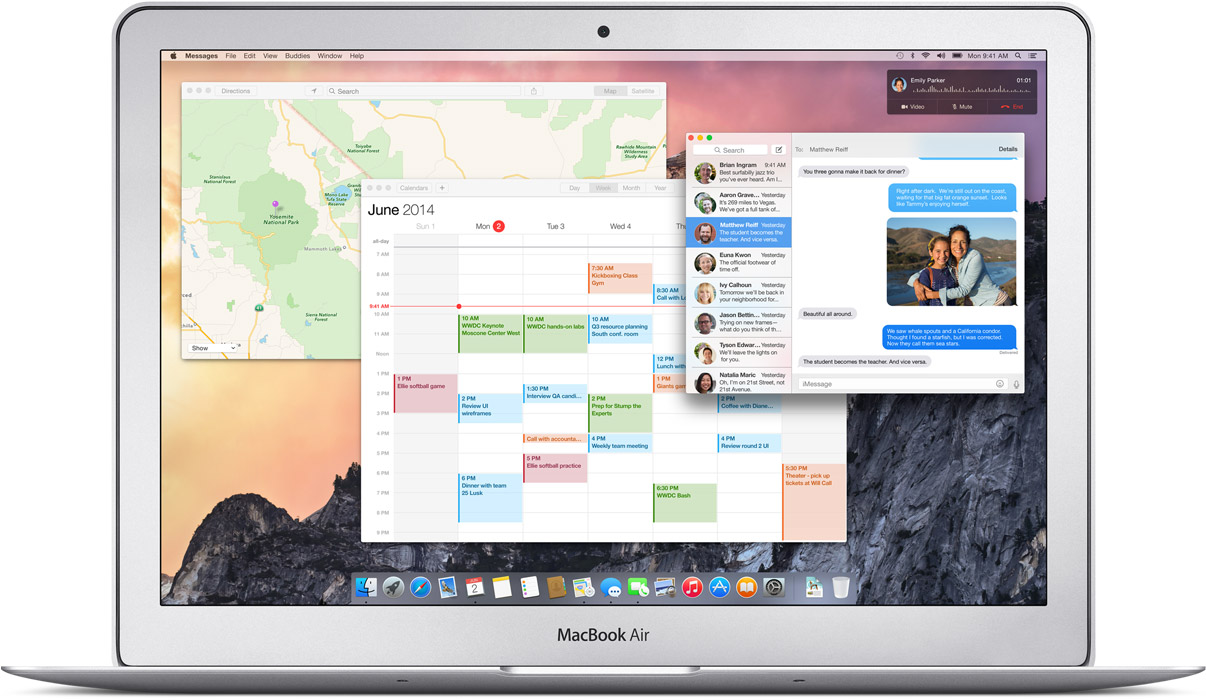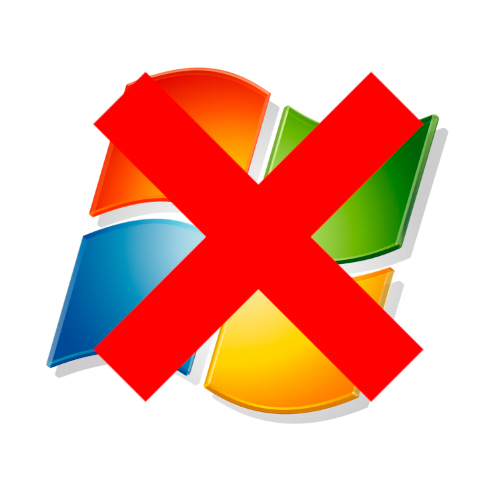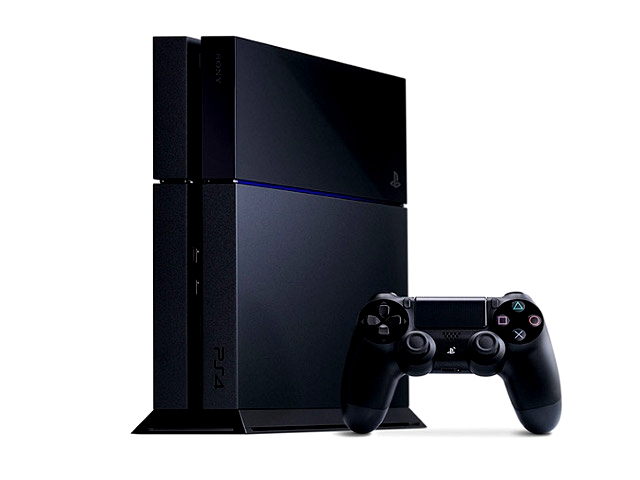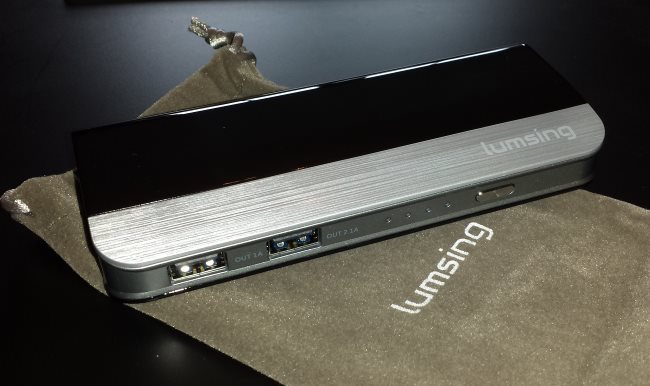
Wise Care 365 version 3 sports major new interface, adds four new modules
WiseCleaner.com has released Wise Care 365 3.11, a major update to its all-in-one Windows maintenance tool. Version 3.11, which comes in free and paid-for versions, opens with a complete redesign of its user interface.
The new release also adds four new tools, revamps two of its major engines and comes with a number of optimizations to other parts of the suite.

Apple showcases OS X 10.10 Yosemite in new video
In early-June, at WWDC 2014, Apple took the wraps off the latest iteration of its Mac operating system, named OS X 10.10 Yosemite. It is now undergoing beta testing, being available only to registered developers. The official launch is set for this fall.
If you want to take a peek at how OS X 10.10 Yosemite looks and some of the new features it brings on Macs, Apple has released a new video, titled The New Look of OS X Yosemite, which showcases the new OS.

ChargeKey and ChargeCard ensure you’ll never be without a USB charger cable again
As we become more and more reliant on mobile gadgets it's inevitable that running out of battery life on your phone or tablet will become a regular occurrence.
Since we don't tend to carry chargers around with us all the time this can be a bit of a problem. If you have access to a USB port, however, your problems may be over.

Microsoft patches Windows 8.x but leaves Windows 7 vulnerable, according to researchers
Around 50 percent of PC users are on Windows 7, while just 12 percent are running Windows 8.x, yet Microsoft is leaving the more popular OS vulnerable to zero day attacks by choosing to only patch the newest Windows version. That’s the findings of two security researchers who built a tool to compare 900 libraries in Windows 8 with their Windows 7 counterparts.
"If Microsoft added a safe function in Windows 8, why does it not exist in Windows 7? The answer is simple, it’s money -- Microsoft does not want to waste development time on older operating systems. They want people to move to higher operating systems," security researcher Moti Joseph claimed in a presentation at the Troopers14 conference in Heidelberg, Germany.

Kim Dotcom offers $5m reward in Megaupload piracy lawsuit
Megaupload founder Kim Dotcom is offering $5 million to whistleblowers willing to help him fight his online piracy case. The German national believes that the information being used against him by the US and New Zealand governments was obtained illegally.
"We are asking for information that proves unlawful or corrupt conduct by the US government, the New Zealand government, spy agencies, law enforcement and Hollywood," he said in an interview with TorrentFreak.com.

Linux Mint 17 OEM images released to manufacturers
In a perfect world, every computer manufacturer would let you choose the pre-installed operating system. Sadly, this is not the case. A trip to Best Buy will reveal many computers with Windows as the only option. Sure, there are Macs and Chromebooks to choose from too, but you can't walk up to the one of your choosing and dictate the OS you want. In other words, if you see a beautiful Sony laptop, you can't choose to have Linux pre-installed by the manufacturer.
There is nothing wrong with Windows, quite the opposite; the operating system is exceptional. However, consumers like choice and offering Linux distributions as an option would be a huge win. Today, the Linux Mint team releases special ISO images designed for manufacturers.

The right way to keep your company data secure online
First Assange, then Snowden and now Heartbleed -- over the last year, the issue of data security has been thrust into worldwide consciousness and stuck there.
In 2013 alone, companies including Facebook, Microsoft, NBC, Evernote and Twitter were targeted by hackers. Google hasn't escaped unscathed. On many of these occasions no private data has been obtained, but data security has become a very real concern for businesses.

Steelseries Sentry Eye Tracker -- control games with your eyes
One of my favorite movies as a kid was Back to the Future 2. In it, Marty McFly, the protagonist, shows off his gaming skills to a bunch of kids using an old Wild Gunman arcade machine. The children scoff at his efforts, as you play the game with hands. The children explain that only baby-toys require you to use your hands! Sadly, in 2014 we are still mostly playing games with our hands, with the exception of some novelties with Kinect and others.
Today however, Steelseries announces a new product that will enable future PC games to interact with your eyes. Yes, you will eventually be able to control games using your peepers, but that functionality is a ways off. The immediate functionality is video game training and coaching. You see, the camera watches you playing the game and analyzes your eyes so it can train you later. Creepy? Kind of. Cool? Absolutely.

Power up the OS X context menu with FinderPop
It doesn’t matter how many refinements and new features are introduced into each new version of OS X, you always end up wanting more, particularly when it comes to the Finder. Thankfully there are usually a slew of third-party apps -- many free -- that can fill in the gaps.
Take the Finder context menu for instance -- if you feel like it could be a little more helpful at times, then you need to install FinderPop 2.5.5.

Memorable tech gifts for Father's Day
On Sunday, June 15, fathers across the world will be ripping off reams of wrapping paper in the hopes of finding a present that isn't a watch, a tie or a pair of socks.
This year, give dear old Dad something different -- to help you out, we've had a quick brainstorm and come up with a shortlist of a high-tech gift ideas we think he'll love.

PhraseExpress provides universal AutoCorrect and AutoText for Windows, unveils multiple improvements
Bartels Media GmbH has unveiled Phrase Express 10.1, a major update to its versatile tool for extending AutoText and AutoComplete to any Windows app. Version 10.1 contains a number of improvements and adds a new cancellation hotkey.
The tool, which is free for personal use and is also available in portable form, allows users to build a personal library of text snippets and phrases for quickly inserting into documents, forms and other windows.

F-Secure releases one-click test for PCs infected by GameOver Zeus botnet
Last week Microsoft boasted of aiding law enforcement in the take-down of the GameOver botnet, one of the leaders in the theft of banking information. However, Microsoft was not the only tech entity involved, and the death notice may have been a bit premature.
One of the others involved was security firm F-Secure, and it has pointed out some important aspects of exactly what happened. The thing people should be aware of is that this does not mean the threat is gone. F-Secure claims that it was "disrupted -- not dismantled".

Watch Sony's PlayStation 4 E3 2014 press conference here
If you’re a fan of the Xbox One, you’ll be able to see what Microsoft has planned for its console later in the year by tuning into the tech giant’s E3 media briefing later on today. That kicks off at 9:30am PDT/5.30pm BST.
If, however, you’re more excited by Sony’s PlayStation 4, you’ll be pleased to know you can watch that press conference instead. Or, if you’re just a fan of games, irrespective of platform, you can tune into both.

Less than a third of attackers account for 80 percent of comment spam
You don't need to spend very much time on popular websites and forums to encounter the curse of comment spam, adverts or links embedded in fields intended for reader interaction.
Comment spammers are most often motivated by search engine optimization, using a busy site's comment fields and guest books to get views for advertisements and malware distribution. A new report by enterprise security specialist Imperva takes a close look at comment spam and looks at ways that companies can combat it.

Lumsing's sexy 'Harmonica Style' battery pack delivers power on the move
Battery packs may not be the most exciting or sexiest gadgets on the market, but the LUM-008-01 Power Bank from Lumsing has a good stab at changing things. But stabbing isn’t the first thing that comes to mind when picking up this battery pack for the first time. Yes, the manufacturers "Harmonica style" description is fairly accurate but this is a unit that is rather weightier than the handheld instrument favored by blues and folk musicians. The mass of 236g (8.3oz) coupled with the way it nestles in the hand brings to mind a form of cudgel; this is a battery pack that could double as a murder weapon. Maybe that's just me... I should probably evaluate it for what it is.
Let's cut to the chase. This is a battery pack. There's a limit to how animated one can get about such a device, but Lumsing's offering gets off to a great start by being so easy on the eye. It's good to look at, and it also feels good in the hand. Style drips from every port. In all there are three ports: one USB input for charging the unit itself, and two outputs for charging other devices such as mobiles and tablets. There's one low powered 1.5 A port and one rated at 2.1 A so there's scope for charging all manner of devices.



